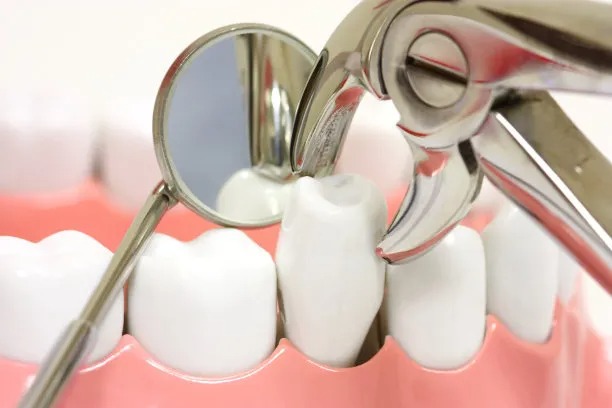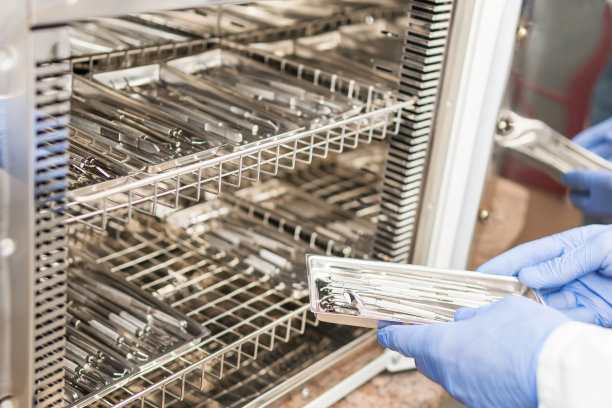Summary: Dental implantation is a transformative procedure that significantly improves oral health and function. This article delves into essential guidelines and precautions to ensure successful dental implantation while enhancing long-term oral health. The discussion is structured around four key aspects: pre-surgical evaluation, surgical procedure, post-operative care, and long-term maintenance. By covering these critical areas, individuals considering implants will understand the necessary steps to achieve optimal results and preserve their oral health in the years to come.
1. Pre-Surgical Evaluation for Implants

The success of dental implants begins long before the surgical procedure takes place. A thorough pre-surgical evaluation is crucial to determine whether an individual is a suitable candidate for implant placement. This process typically includes a comprehensive dental examination, medical history review, and imaging studies such as X-rays or CT scans to assess bone density and structure.
Additionally, the dentist should evaluate the overall oral health of the patient. Any existing dental issues, such as gum disease or tooth decay, must be addressed prior to the procedure. Ensuring the mouth is healthy is fundamental to the success of the implant, as oral bacteria can jeopardize healing.
Lastly, its important for patients to discuss their expectations and any concerns with their dental provider. Proper communication can help in developing a tailored treatment plan that aligns with the patient’s needs, thus fostering a smooth implantation process.
2. The Surgical Procedure Explained
The surgical procedure itself is a critical component of successful dental implantation. It typically involves several stages, beginning with the placement of the implant into the jawbone. This requires a well-planned surgical environment and the use of appropriate anesthesia to ensure patient comfort and safety.
Careful technique during the implant placement is essential. The dentist must ensure that the implant is positioned accurately within the jawbone and that the surrounding tissues are minimally disturbed. The choice of materials—such as titanium implants—can also play a role in the long-term integration of the implant with the bone.
Post-surgery, the healing process can vary depending on individual factors. Its essential for dental professionals to provide detailed instructions on how to manage any discomfort and signs of healing. Understanding the timeline and phases of recovery can help set patient expectations and contribute to overall success.
3. Post-Operative Care After Implantation
Effective post-operative care is vital to facilitate healing and ensure the success of the dental implants. Patients should follow their dentists instructions diligently, which may include dietary restrictions, hygiene routines, and pain management recommendations to minimize discomfort.
Close monitoring of the surgical site is necessary during the recovery phase. Patients should be educated about warning signs of complications, such as excessive swelling, bleeding, or infections. Prompt attention to these issues can prevent further complications and ensure successful integration of the implant.
Regular follow-up appointments with the dentist will also be crucial during this recovery phase. These visits allow for the assessment of healing and the opportunity to address any questions or concerns, reinforcing the importance of professional oversight in achieving optimal results.
4. Long-Term Maintenance of Dental Implants
Once the recovery phase is complete, maintaining dental implants is essential for their longevity and the overall health of the mouth. Patients should establish a consistent oral hygiene routine that includes brushing, flossing, and using antimicrobial mouthwashes.
Routine dental check-ups will help ensure that implants and surrounding tissues remain healthy. During these visits, the dentist can evaluate the condition of the implants and perform necessary cleanings, thus preventing potential complications in the future.
Moreover, patients should also be aware of lifestyle factors that could impact the longevity of their implants. Avoiding tobacco products and maintaining a balanced diet rich in vitamins and minerals will not only benefit the implants but also contribute to overall oral health.
Summary:
In summary, the journey to successful dental implants involves careful pre-surgical evaluation, a precise surgical procedure, diligent post-operative care, and a commitment to long-term maintenance. By adhering to these essential guidelines and precautions, patients can enhance their chances of successful implantation and preserve their oral health for years to come.
This article is compiled by Vickong Dental and the content is for reference only.
Vickong Dental
Vickong Dental is a large medical group established in Hong Kong in 2008 by professors from well-known medical universities in Guangdong and Hong Kong, as well as medical doctors from key national '985' universities (including Master's supervisors and senior professors). The chain of branches brings together expert dentists with PhDs and Master's degrees from Hong Kong and Mainland China, committed to providing high-quality dental treatment.
"Vickong Dental Practices the University Motto of 'Healing and Serving Society,' with a Stable Operation for Sixteen Years. It Has Been honored with Hong Kong Enterprise Leaders's Choice,' and is a Global Trusted Implant Center for the Nobel Implant System. Recommended by Hong Kong Metro Broadcast and Guangdong Television, it Serves Customers from Over Thirty Countries and Regions, Gaining the Trust and Favor of Citizens from the Guangdong-Hong Kong-Macau Greater Bay Area and Surrounding Cities.

Thousands of customers' unanimous praise
The most recognized and highly recommended dental service by customers in the Guangdong-Hong Kong-Macau Greater Bay Area
We Ensure You Receive Detailed Care and Attention Here
Hong Kong standards, Shenzhen prices, Your Trusted English-speaking dentists

Vickong Dental Medical-Grade Instrument Disinfection Process
Vickong Dental Medical-Grade Instrument Disinfection Process

Vickong Dental Chain: A Warm and Comfortable Environment for Treatment






Appointment Hours

Q&A
Why choose Vickong Dental?
Vickong Dental practices the university motto 「Medicine to Benefit Society」, with each branch bringing together highly qualified dentists with doctoral and master’s degrees from Hong Kong and the Mainland, and has maintained seventeen years of steady operation。Recipient of 「2024 Hong Kong Enterprise Leaders Brand」, 「2025 Hong Kong Enterprise Leaders Brand」, a Nobel Biocare Global Trusted Implant Center, and a brand recommended by Metro Radio Hong Kong and Guangdong TV。
To date, we have served customers from more than thirty countries and regions,earning exceptionally high word-of-mouth recognition and trusted recommendations from residents across the Guangdong-Hong Kong-Macao Greater Bay Area and surrounding cities
We have eight major branches in Zhuhai、Shenzhen,and a consultation and service assurance center in Hong Kong,so you can book a free consultation at any time for any questions,which is very reassuring.
If I do not accept the quotation after the CT scan, will I be charged??
No! As long as the actual treatment has not started, you will not be charged any fees.
Will there be any additional charges during the treatment process?
No, there won’t be any additional charges. Before treatment begins, we will clearly explain the treatment plan and its corresponding fees. Only after the patient agrees and signs the consent form will we proceed with the dental service.
Can I pay in Hong Kong dollars?
Yes. Vickong Dental accepts payment in Hong Kong dollars. The amount will be converted based on the exchange rate of the day, and the applicable rate will be clearly communicated to you in advance.
Can I reschedule my appointment at any time?
Yes. Please contact us via **WeChat** or **WhatsApp** as early as possible, providing your original appointment time and details, along with your preferred new date and time slot for rescheduling.













